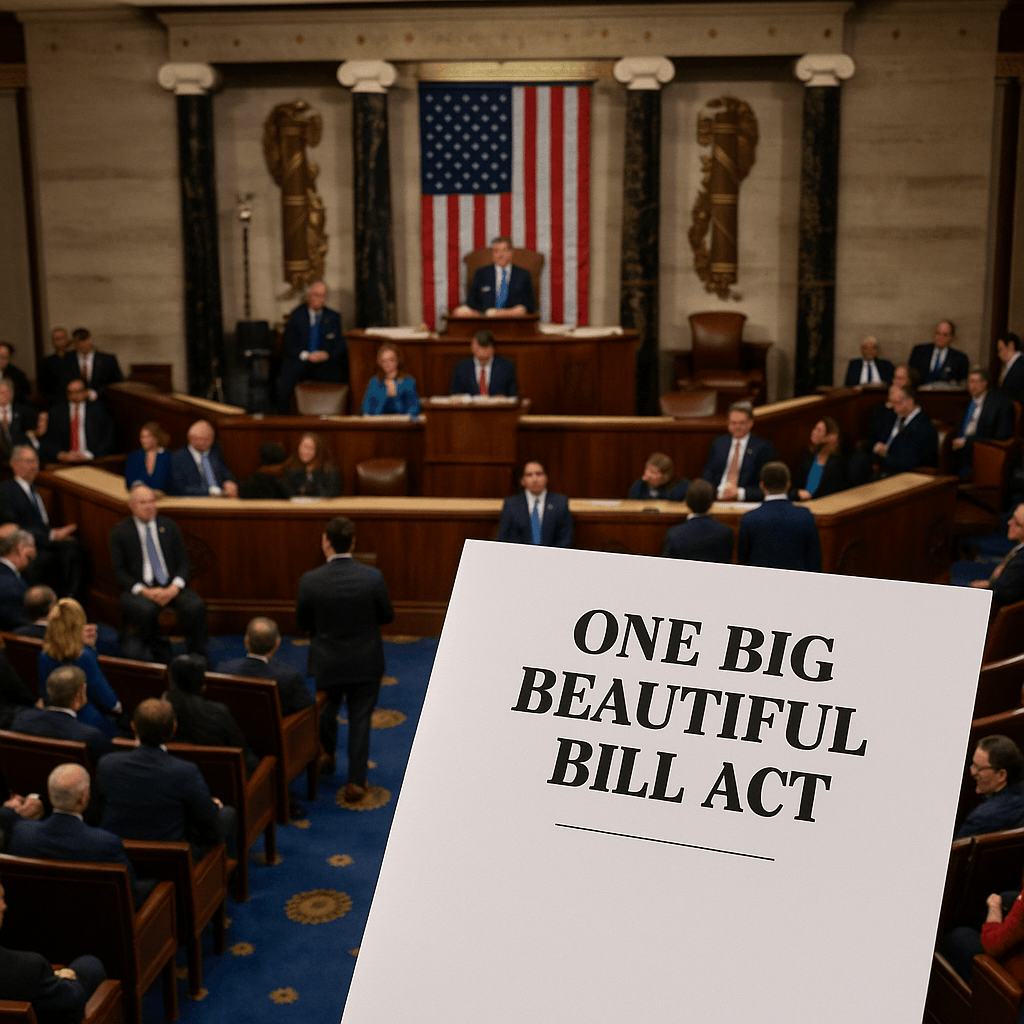On May 26, 2025, the U.S. House of Representatives approved one of the most controversial legislative moves in the age of artificial intelligence. Embedded deep within the sweeping “One Big Beautiful Bill Act” was a provision few saw coming: a 10-year moratorium on state-level AI regulations. If signed into law, the federal government would take exclusive control over AI governance, effectively sidelining state efforts to address fast-evolving AI-related challenges such as deepfakes, algorithmic discrimination, and data manipulation.
Proponents of the moratorium argue that a fragmented patchwork of state laws would stifle innovation and create regulatory chaos for companies operating across jurisdictions. Centralized oversight, they claim, will ensure consistency, promote responsible AI development, and keep the U.S. competitive on the global stage. With the rise of foundation models, agentic AI, and real-time decision systems, coordination is seen by many in the tech industry as not only preferable but essential.
But critics across the political spectrum are sounding alarms. Lawmakers in states like California, Texas, and Massachusetts argue that the absence of robust federal legislation leaves a dangerous gap in enforcement and accountability. Without the ability to pass their own laws, states may be unable to protect residents from AI-driven fraud, privacy violations, or misinformation campaigns. The timing of the moratorium—coming just as AI deepfakes and chatbots are being used to influence elections and impersonate public figures—has amplified concerns.
Civil liberties groups and academics have joined the resistance, warning that the bill could allow unchecked corporate deployment of powerful AI systems in sensitive areas such as surveillance, employment, and education. They point out that in the past, states have often led the way on emerging tech regulation, from consumer privacy laws to environmental protections.
This legislative flashpoint illustrates the broader tension between rapid innovation and democratic oversight. As AI becomes more integrated into daily life, the question of who gets to write the rules—and when—is no longer theoretical. The next chapter may rest with the Senate, but the stakes have already been made clear: the battle over AI regulation is not just about technology, it is about power.
